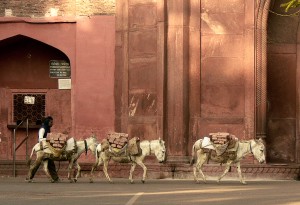For a period of twenty years I lived and traveled in India for months at a time and doing so meant leaving this comfortable cocoon called North America. Those early trips were, to say the least, a culture shock and for those people who’ve gone through it their lives are forever changed.
It’s impossible to leave India and continue one’s life without, at the same time, a deep awareness of the poverty and hunger that exists in so much of the world. Social safety nets, the pride of Western democracies, would be as useful as a drop of rain in raising the great lakes, when it comes to such poverty.
What is immediately clear is that what we have in the West will not survive if we don’t share it with others. All human beings desire the ability to earn a living and raise a family in relative safety. All human beings desire the freedom that enables them to do this.

When we hang onto things, when we believe there’s only enough for ourselves, greed is operating. Greed takes over when I want what I want and set out to get it, no matter the cost to others. This is what so much in Western societies are about today.
Real happiness is not the result of success. In India I found people who had nothing. By Western standards they’d be considered unsuccessful despite the fact they were happy.
A friend of mine went to India. An American, she believed she had something to offer the poor people of India. She spent six weeks in silent retreat at a Buddhist convent in northern India. One day while sitting in a tower that overlooked the surrounding fields, she saw children playing, their laughter carrying on the warm afternoon air.
Large ditches surrounded the fields through which river water flowed mixing with sewage and debris. Children were jumping into the water, swimming and splashing in it.
Another day she noticed a little girl who couldn’t walk. She must have had polio. Her legs had atrophied and she moved by taking her weight on her hands and swinging her legs around in front of her. She was playing ball and the children playing with her didn’t notice her infirmity. She was a friend, one of them, a human being in another body.
In America and Canada the crippled girl would have sat in a wheelchair, watching the other children play. The little girl in north India had no wheel chair and played with her friends. When it was time to go one of the boys picked her up and hoisting her on his shoulder they set off together.
Happiness, my friend came to see, had nothing to do with her body, her education, wealth or social status. What she’d been taught in her consumer oriented culture turned out not to be true.
When the unconscious belief, that she’d something to offer slipped away, the gift provided by the children was suddenly available to her. Real happiness is found in life as it is, not as it might be.
My Tai Chi teacher used to say, “What happens when you push a ball under the water with one finger? It spins out and rises to the surface again. Live life like that.” To do this is to live from that place the poet TS Elliot referred to it as “the stillpoint of the turning world.”
Colin
Comments are closed.